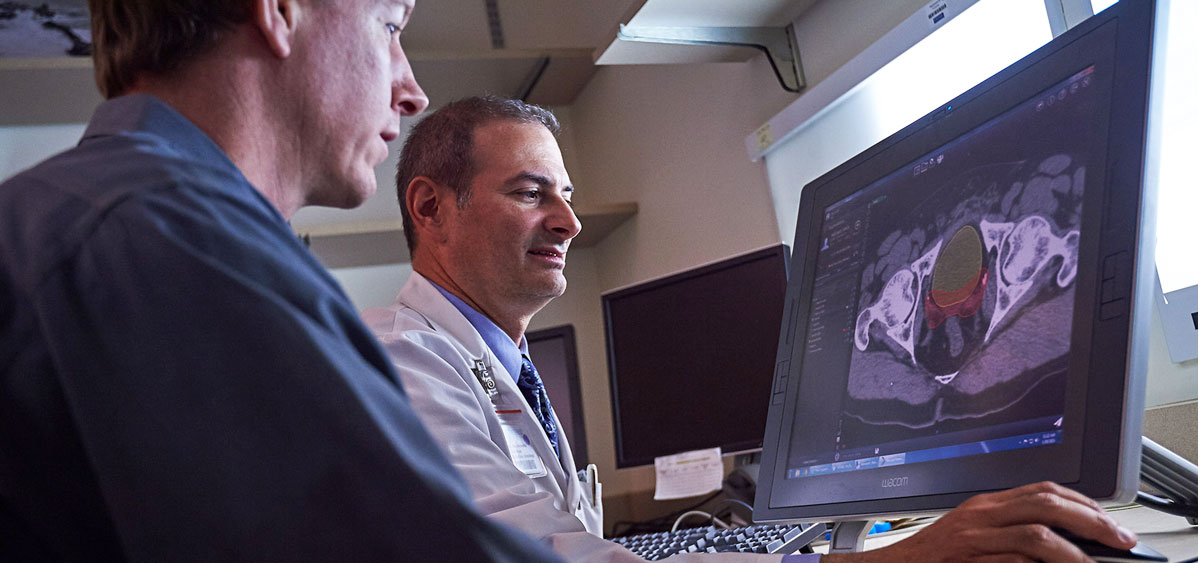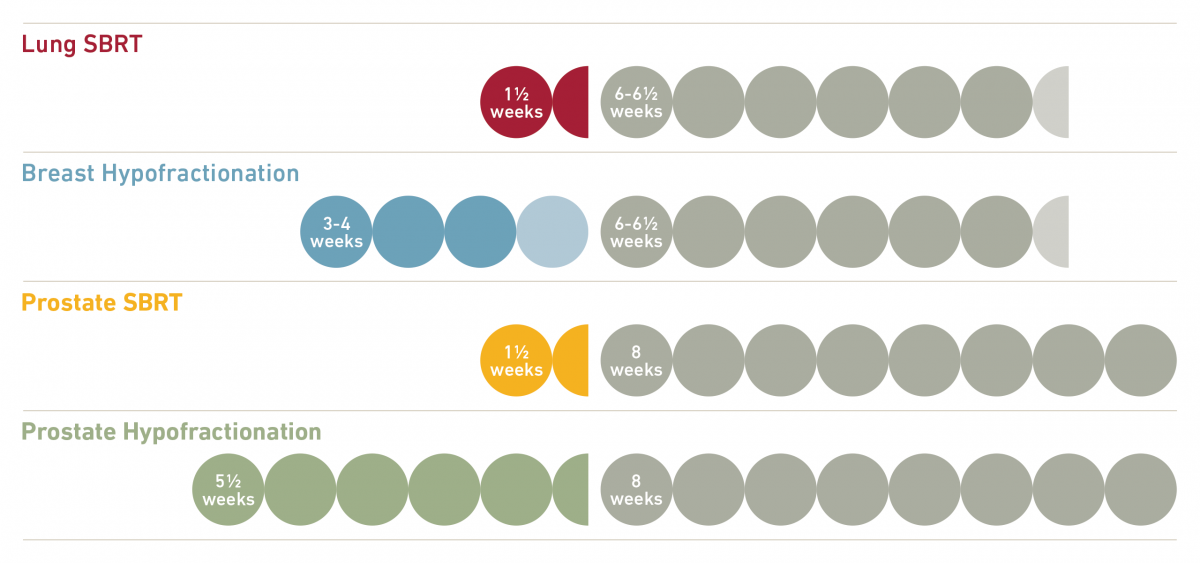
At Fox Chase Cancer Center, we believe delivering high quality clinical care should be convenient for our patients. Our radiation oncologists have worked to help pioneer an advanced treatment technique that is quickly becoming a standard of care for lung, breast, and prostate cancer patients.
It’s called hypofractionation.
Using hypofractionation, or hypofractionated radiation therapy, more doses of radiation are delivered per treatment, so patients can complete their course of radiation therapy much faster than conventional treatment.
Some patients are eligible for extreme hypofractionation or SBRT (stereotactic body radiation therapy), which, when appropriate, can shave weeks off the traditional treatment length with the possibility of fewer short term side effects and a better quality of life for our patients.
Pioneers in Advanced Treatment Techniques
Many clinical trials have proven hypofractionation to be just as safe and effective as conventional radiation therapy.
Fox Chase researchers conducted one of the biggest studies of hypofractionation in the U.S., testing the current standard of radiation care administered over many weeks compared to hypofractionation delivered at higher doses in a shorter period of time.
The results, presented at ASTRO, found no statistically significant difference in long-term toxicity between the two techniques, and determined hypofractionation was well tolerated with very few side effects.

Length of Treatment
The length of treatment depends on the type of cancer being treated.
Lung Cancer
Extreme Hypofractionation (SBRT): 1½ weeks
Conventional treatment: 6½ weeks
Learn more about Hypofractionation for Lung Cancer.
Breast Cancer
Hypofractionation: 4 weeks*
Conventional treatment: 6½ weeks
Learn more about Hypofractionation for Breast Cancer.
Prostate Cancer
Extreme Hypofractionation (SBRT): 1½ weeks
Moderate Hypofractionation: 5 ½ weeks
Conventional treatment: 8 weeks
Learn more about Hypofractionation for Prostate Cancer.
*Extreme hypofractionation, or SBRT (stereotactic body radiation therapy), is not yet appropriate for breast cancer patients.